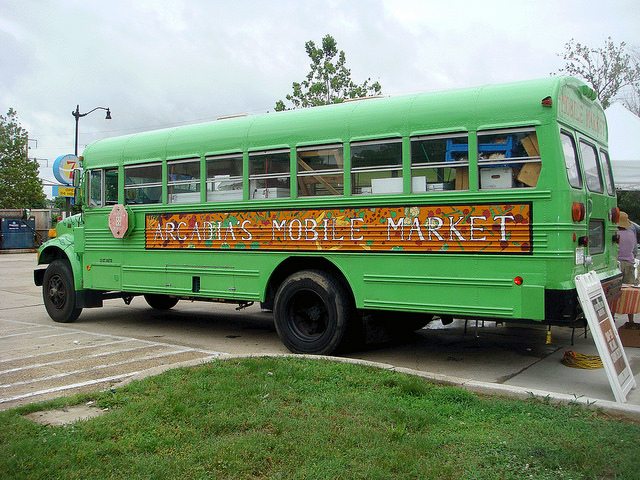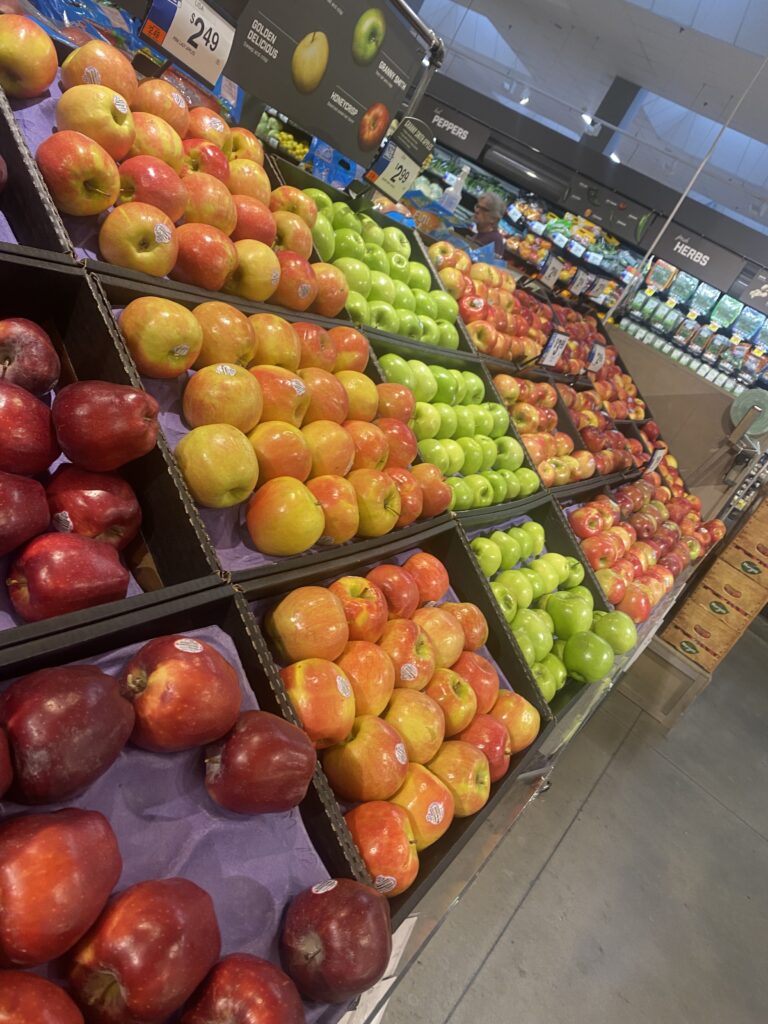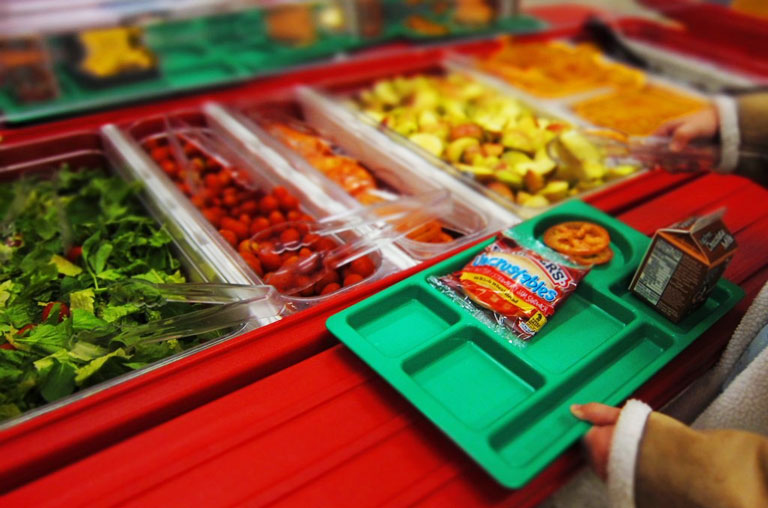Parkside-Kenilworth neighborhood residents can now buy fresh rainbow chard, lacinato kale, cabbage, strawberries, scallions and mushrooms without having to travel outside of their community. Up until three years ago, when Arcadia Farm’s Mobile Market first pulled into a central parking lot, many residents had never heard of some of these foods, let alone tasted them.
Neighborhood resident and satisfied customer Bernice Johnson said she really appreciates the visits of the traveling food stand.
“Last week, I bought spare ribs, collard greens and kale, and they were delicious… they were less expensive than they are in the grocery store… the closest grocery store is twenty minutes [driving] from where I live,” Johnson said.
Before the mobile market arrived, the only other food within walking distance in the Ward 7 neighborhood was found in a small convenience store. Although the shop sells eighteen different flavors of canned potato chips and almost as many flavors of generic soda, it offers few fresh fruits and vegetables.
The Mobile Market, which operates out of a 28-foot retrofitted school bus, provides healthy, affordable foods to 10 different low food access locations in DC from May through October.
The Arcadia Farm in Alexandria, Virginia, grows the produce and relies on other local vendors to supply other goods, such as bread, eggs, meat and dairy.
Through partnerships with other service providers like the nonprofit DC Greens, the market not only accepts federal food benefits such as SNAP (Supplemental Nutrition Assistance Program) and WIC (Women, Infants and Children) but also doubles the value of such government subsidies when shoppers spend them on food.
At that rate, it is possible for a mobile market customer to buy the makings of a meal of spare ribs, asparagus, and fresh dinner rolls for five dollars worth of food stamps. The same amount would only buy a single can of potato chips and two bottles of soda at the convenience store.
Sorelle Cooper, a family nurse practitioner who works with the Fruit and Vegetable Prescription program sponsored by DC Greens and supported by Wholesome Wave, a Connecticut-based nonprofit, brings her patients to the market each week so they can redeem their prescriptions for market vouchers.
“For many of our patients, this is their first time interacting with fresh fruits and vegetables.”
The mobile market also provides as much education as possible about food preparation and healthy nutrition. The bus visits local schools and offers informational pamphlets to its customers at each location. At a recent Thursday market stop in Parkside-Kenilworth, the market’s 2014 summer fellow, Anna Hymanson could be seen flourishing two fistfuls of fresh leaf vegetables, charismatically explaining to a shopper, “this is kale. These are mustard greens.”
The market regularly offers samples of dishes prepared with the produce as well. Juju Harris, the market’s culinary educator and SNAP outreach coordinator, recently published the Mobile Market Seasonal Cookbook to help consumers prepare fresh meals. Each new market customer receives a free copy.
The most difficult concept for consumers to understand is that the mobile market’s produce is local and seasonal, Harris explains as she casually drops fresh mint and a strawberry into her water bottle. “We don’t have year-round bananas.”
Consumers tend to understand the benefits at first bite, though, and they keep coming back. Since its first year, the mobile market expanded from 445 to 513 market hours, and even more are planned for this year.
But the market won’t ever be seen at other, multi-vendor markets in the city. It doesn’t want to compete with other local farmers who make a living off of their sales, and its objective is to provide farm fresh food where it isn’t available, not where it already is.
For the Arcadia Farm Mobile Market, food and people always go together. The food is always organic, local, and fresh, and the people it feeds are always given the greatest benefits the market can provide.
“My thing is food. That’s really what I do. Talking food with people,” Harris explains.
Benjamin Bartley, Arcadia Farm’s food access director, feels similarly, expressing his experience with food and then immediately coupling it with his relationship with people. “I’ve worked in the food industry for the better part of a decade, and for the most part, it’s been in the kitchen. I like working with people. It’s rewarding.”








